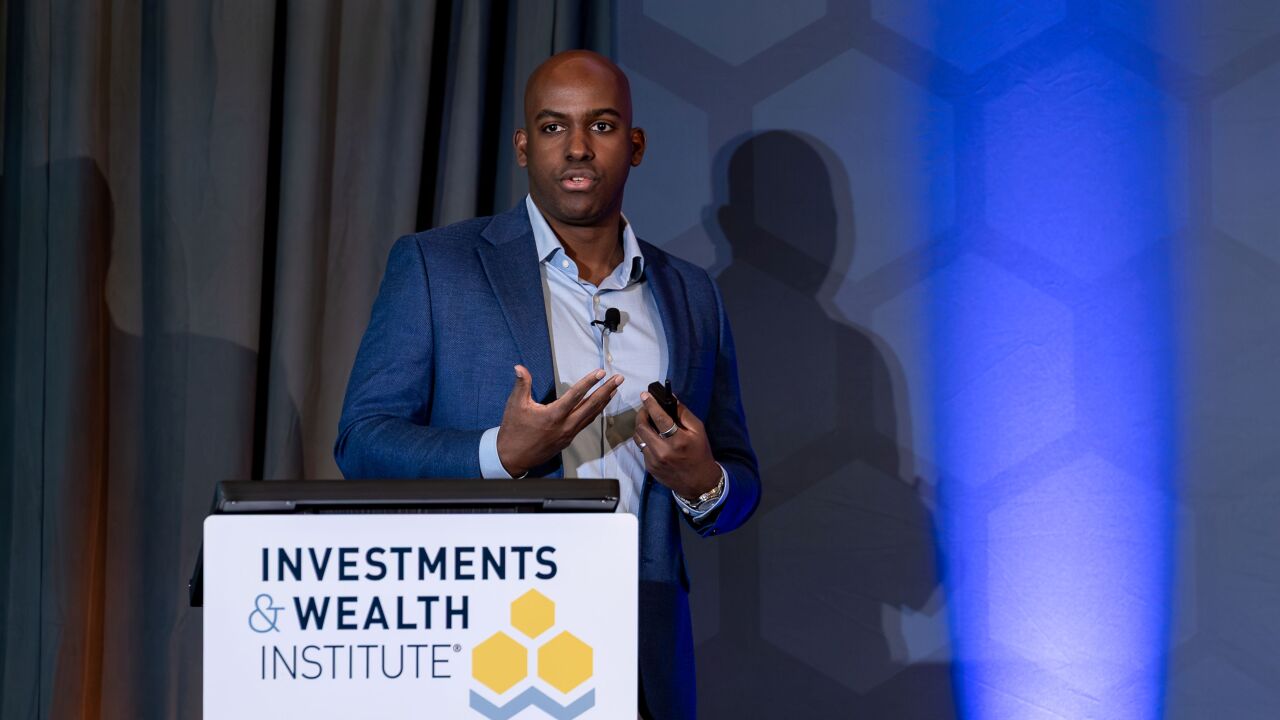Ahhh, there's nothing like a good scandal to fuel additional prospectus disclosures being pushed out to financial advisers and investors.
Within the last few weeks, in light of increased scrutiny and the focused attention of regulators, a flurry of fund advisors have been revamping or adding more direct information about investor qualifications for the reduction of front-end sales charges via breakpoints, and funds' use of redemption fees to thwart market timers and would-be arbitrageurs. In some cases, newly installed redemption fees are also being touted.
At Lord Abbett & Co. of Jersey City, N.J., the prospectus for virtually all of the funds now includes expanded descriptions that the amount of new purchases of A shares may be combined with the current value of various other share classes previously purchased in a Lord Abbett fund, in order to reduce the sales charge on the new investment.
More notably, a new paragraph has been added, that puts the onus on investors to tell their financial adviser if they qualify for reduced sales charges.
The new information was added as "an ongoing reminder for shareholders that, whenever possible they should try to take advantage of lowering their sales charge," said Jason Farago, spokesman for Lord Abbett.
Likewise, Phoenix Investment Partners of Hartford, Conn., has added a much more detailed disclosure universally to its funds' prospectuses which replaces a generic section. The new disclosure begins, "Your financial representative should recommend only those arrangements that are suitable for you based on known information. In certain circumstances, you may be entitled to a reduction or waiver of sales charges.
Phoenix opted for the clearer and more detailed disclosure in order to respond to the recommendations recently promulgated by the joint NASD and industry group task force on breakpoints, said Sharon Bray, spokeswoman for Phoenix. "We wanted to be at the forefront, rather than waiting until it was required."
This past July, the 24-member Joint NASD/Industry Breakpoint Task Force issued a report, which recommended a number of operational changes and disclosure best practices for mutual funds, as well as broker/dealer distributors, and service providers, regarding improperly assessed breakpoint discounts discovered by regulators last year. It recommended the SEC require prospectus disclosure that alerts investors about the need to "provide their broker/dealer with information necessary to take full advantage of the breakpoint discounts."
On another "scandalous" front, funds have also begun reemphasizing through recent SEC filings that they either already have redemption fees in place on their fund(s) in order to forestall disruptive marketing timers, or will be installing a new redemption fee to thwart would-be timers.
American Century Investments of Kansas City, Mo., recently reiterated, through a prospectus amendment, the maximum 2% redemption fee that it charges on five of its funds -- including an international and emerging markets fund -- for redemptions made within 180 days of purchase. That disclosure was just an update.
In similar fashion, Matthews International Capital Management of San Francisco restated the 2% redemption fee that it charges on the Matthews Asia-Pacific Fund for redemptions executed within 90 days of purchase. According to company president Mark Headley, the policy isn't new, but the firm wanted to be sure that its policy was "entirely clear" as the language had been condensed when the firm last retooled the fund's prospectus.
Definitely new are the redemption fees being instituted by both the Independence Small Cap Portfolio and the Analytic Global Long-Short Fund, both series of the Advisors' Inner Circle Fund for which SEI Investments of Oaks, PA., serves as administrator. Effective October 1 both will implement a 2% redemption fee.
Also new is the 2% redemption fee, which will take effect November 21 on the BNY Hamilton International Equity Fund, an enhanced international index fund that is managed by a specialist team at The Bank of New York. This is the only fund managed by The Bank of New York that will sport a redemption fee.
The timing was coincidental to the headlines screaming about arbitrageurs and off-radar market timing arrangements, said Kevin Bannon, chief investment officer of The Bank of New York. The board of directors had approved installing the fund's redemption fee at its Aug. 20 meeting, he said. While the fund is not as vulnerable to market timers as other international funds by virtue of the fund's investment in American Depository Receipts (ADRs), which represent a specified number of shares of a foreign company and are issued by U.S. banks, The Bank of New York's conservative "belt and suspenders" style led to the decision to stymie any potential arbitrage opportunities, Bannon added.
Copyright 2003 Thomson Media Inc. All Rights Reserved.
http://www.thomsonmedia.com http://www.mmexecutive.com





